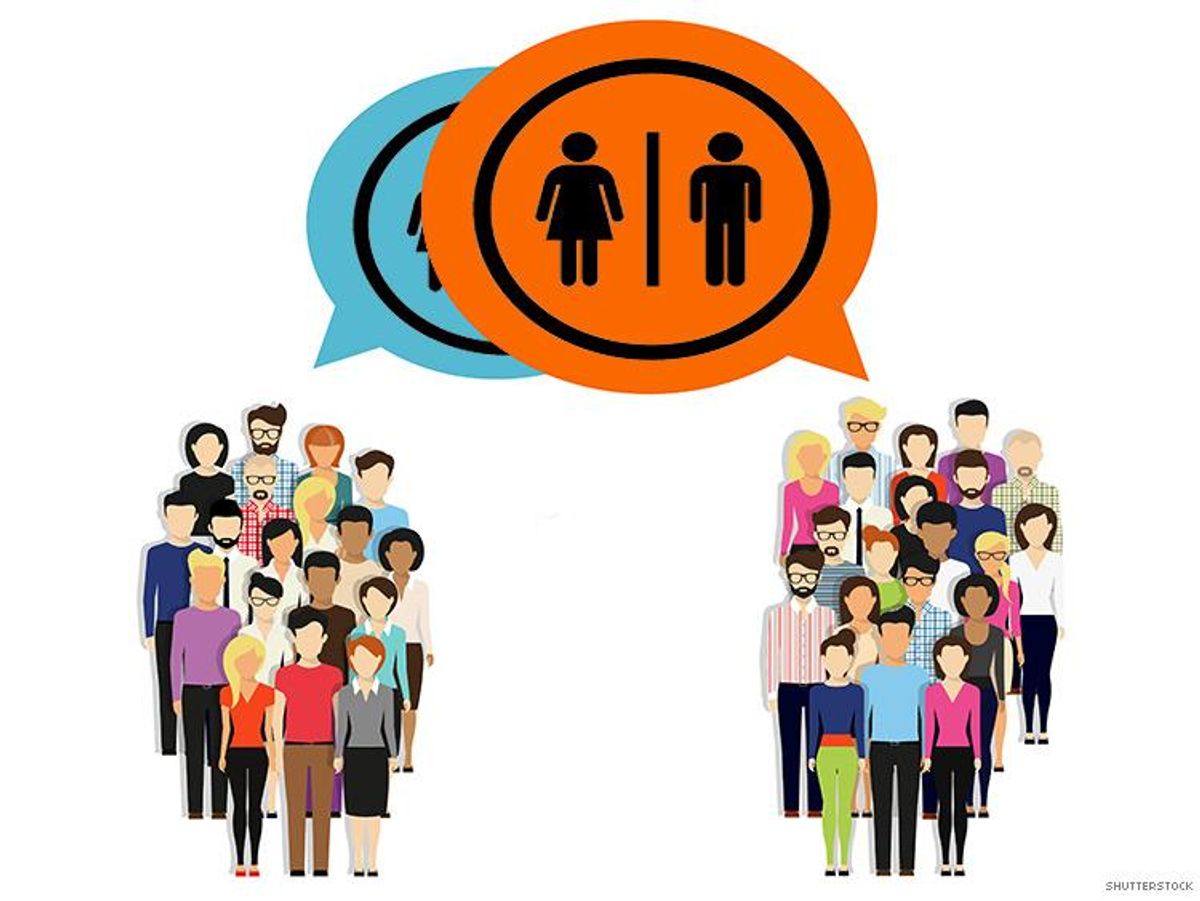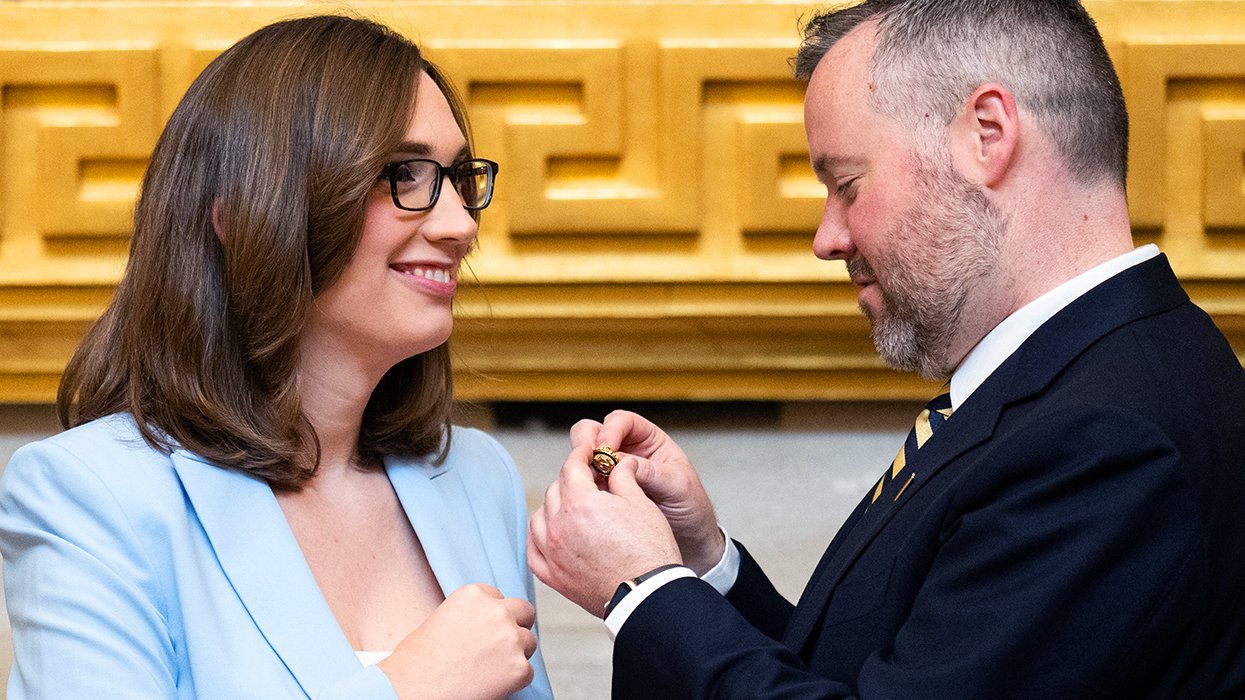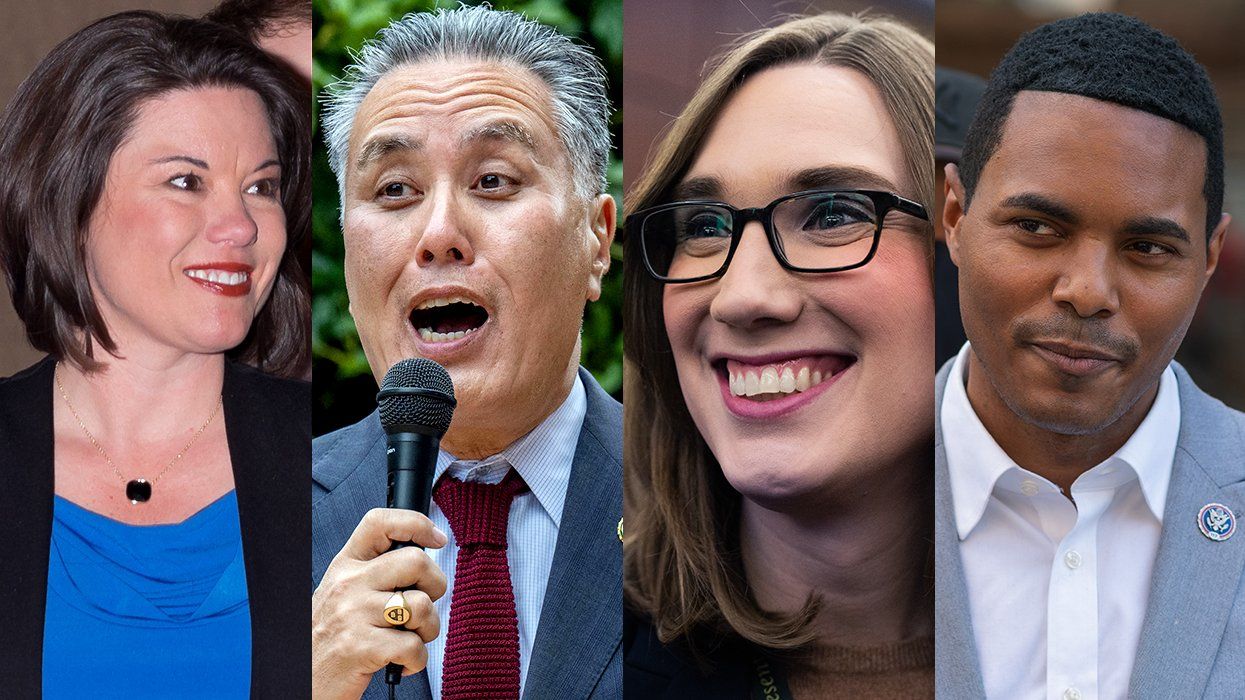A sizable number of Americans are unsure whether to back LGBT people on two of the big issues they now face, a new poll released Wednesday shows.
On whether business owners ought to be able to turn away same-sex couples seeking wedding services, and on whether transgender people ought to be allowed to use the bathroom that matches their gender identity, the Pew Research Center may have identified not only the opposition but also the size of the "movable middle" that activists so frequently talk about.
Researchers asked respondents which side of the debate they sympathized with, and a sizable number claimed to see both sides. On whether businesses should be able to refuse wedding services to same-sex couples, 18 percent sympathized with both sides. That number remained constant on whether trans people deserve access to appropriate bathrooms.
A nearly equal number of people said they sympathize with neither side. On wedding services, it was 15 percent. On bathrooms, it was 19 percent.
Pew's analysis of the poll described those who are essentially on the fence as "relatively few" people, but it might be more than activists expected. In many states, LGBT advocates are fighting political battles where a few percentage points in public opinion could make a difference.
In North Carolina, which barred trans people from using the appropriate bathroom and which also banned LGBT-inclusive antidiscrimination ordinances, Republican Gov. Pat McCrory is in a close reelection fight. The issue is among top concerns in the state, which has faced economic backlash for passing the law, House Bill 2.
When forced to pick an allegiance, the two sides on these issues wind up at about the same size, according the survey results.
About the same number of Americans say business owners should be able to refuse service to same-sex couples who want wedding services (48 percent) as say it's discrimination (49 percent). The picture is only slightly better in the fight over access to bathrooms for transgender people. The poll found 51 percent of people said trans people ought to be allowed to use the bathroom that matches their gender identity, with 46 percent opposed.
The survey is also enlightening because it explains what makes people want to deny service to same-sex couples getting married. It's not an issue of civil rights. To them it's a "moral" issue. Pew found that among the 35 percent of people who still say homosexual behavior is morally wrong, a whopping 76 percent said businesses should be able to refuse wedding services to same-sex couples.
The moral questions on these issues are more complicated if a person knows someone who is LGBT. Pew found that those who don't know a gay person are more likely to be OK turning away same-sex couples. The difference was most sharp on the question of access to bathroom.
"Knowing someone who is transgender is closely linked with views on the use of public restrooms," Pew wrote in its analysis of findings. "Most people who personally know someone who is transgender say that transgender people should be allowed to use public restrooms that match their current gender identity (60%)." The problem is only three in 10 Americans said they knew a transgender person.
There was another way to predict whether a person would support refusing service: look at their political party registration. Republicans said businesses should be able to refuse service by a 71-26 margin. On access to restrooms for trans people, Republicans opposed it 67-30.
While Jews and Catholics and those unaffiliated with any religion were more likely to say businesses should be required to serve everyone (64 percent, 54 percent, and 65 percent, respectively), Protestants went in the other direction. Just 36 percent were opposed to discrimination. Then among Protestants, race played a factor, with black churchgoers evenly split on the question, while white churchgoers lined up strongly against serving everyone no matter their sexual orientation. Not surprisingly, white evangelical Protestants were most likely to support refusing service (77 percent).
That phenomenon largely held up on the issue of bathroom access, with one exception. Catholics are evenly split on that question, with 47 percent backing access and 50 percent opposed.
The survey was conducted among 4,538 adults between August 16 and September 12.


















































































